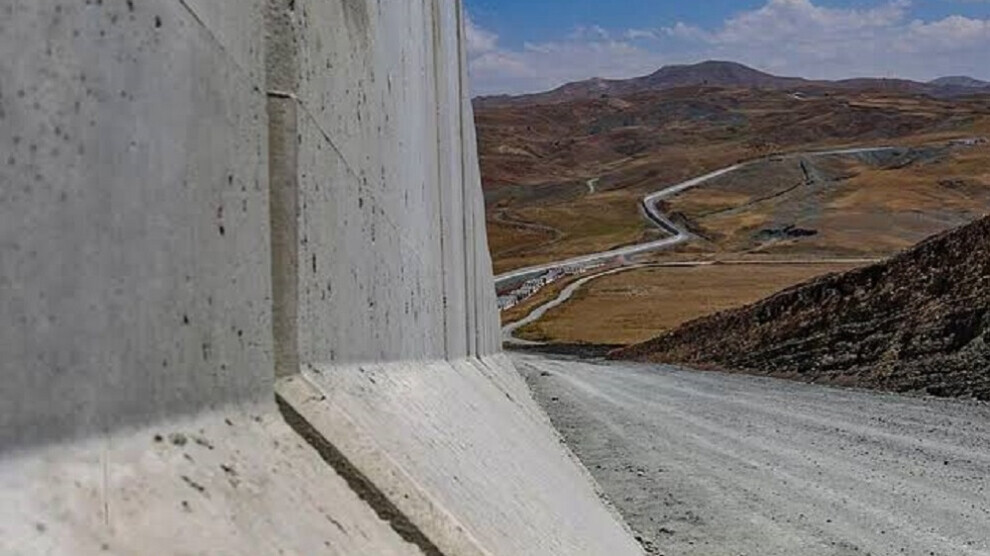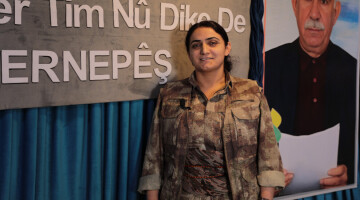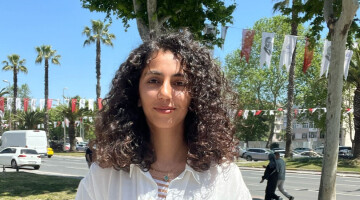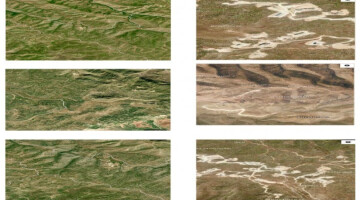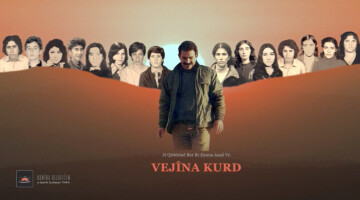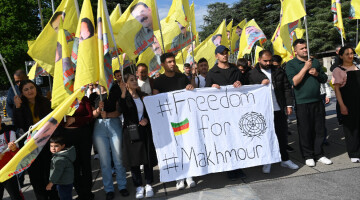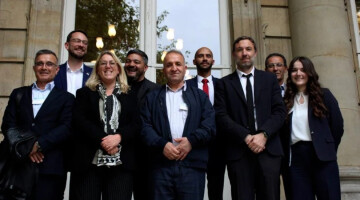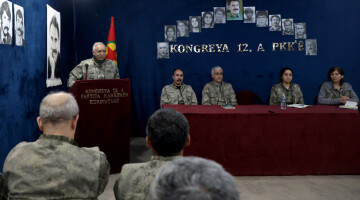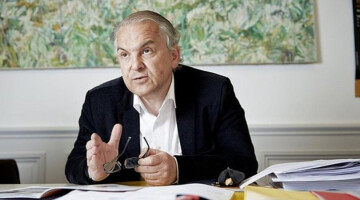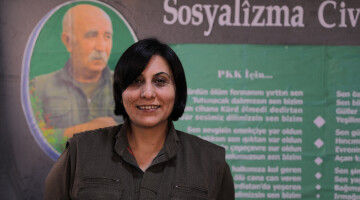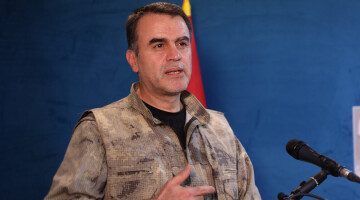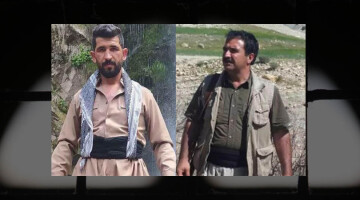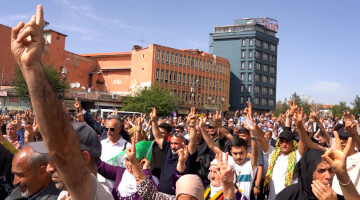78 years ago, on July 30, 1943, 33 Kurdish villagers with their hands tied were taken to the Sefo creek on the Iranian border and shot on the orders of General Mustafa Muğlalı. After a survivor of the massacre, which was committed with the allegation that the villagers were 'smugglers' who continuously violated the border, appeared 7 years later and told what had occurred, General Mustafa Muğlalı was first sentenced to the death penalty and then to life imprisonment.
Van Governor M. Emin Bilmez announced that construction of a wall along the Rojhilat-Bakur border, exactly where the 33-bullet massacre occurred, had begun.
THE LAND OF THE PEASANTS WILL BE OCCUPIED
Villagers will be kept at least 1 km away from the border with the wall to be built who were already unable to cultivate their farmland or take their animals to pasture due to previous ditches dug on the border and the application of the forbidden zone. Difficult days lie ahead for the villagers who own land in the area and graze their animals there.
The Sirimli village in Saray district is very close to the Iranian border. This village is home to the majority of the villagers murdered in the 33-bullet massacre. The villagers' complaints about losing their pastures and agricultural lands where they graze their animals to the state under the guise of a military zone continue even to this day. Cizeyir Özkaplan, one of the villagers who lost their relatives in the 33-bullet massacre, said that he condemned and cursed all the massacres in Turkey.
"33 of our relatives were executed innocently," Özkaplan said and noted that “Years have passed since the massacre of 33 bullets but we can not forget it. Governments change, but the state remains constant. We expect the state to apologize, but instead, the state is erecting border walls that will aggravate our grievances. They almost embraced the massacre. After all, half of Saray and Özalp's population is descended from those who were murdered. We want the 33 monuments that we had previously demanded to be built there. The forbidden zone has grown larger. We still can't go to the site of the 33-bullet massacre, and those people still haven't had a grave for 78 years."
THE WALL WILL BE THE END OF AGRICULTURE AND LIVESTOCK
Noting that wires with a width of 5 meters were first drawn on the border and then ditches with a width of 5 meters were dug, Özkaplan expressed his concerns as follows: "Many of the ditches occupied our lands and caused great damage to us. Here, we do animal husbandry and farming. We can't return to our animal pastures. It could have been a different situation if it was built on the zero lines, but in places it falls 500 meters inland on our fields and it will be forbidden to approach this wall 500 meters. Agriculture and livestock will then perish completely. This region will be declared as a military zone."
Stating that the only official border crossing at the border, the Kapıköy border gate, is closed thrice a year, Özkaplan said, "On the other side of the border, we have relatives and people with blood tie. We go to each other's funerals, we go to their weddings, and they come here as well. They want us to be completely apart from each other. Our aim is not to trade at the border to go shopping. However, we see hundreds of refugees crossing the border with a waving hand every day, but we are unable to take our animals to the pastures. This raises a number of questions in our minds. How come that thousands of Afghan refugees travel all the way to Van but we can't leave our village."
THEY ARE BUILDING A WALL BETWEEN THE KURDISH PEOPLE
Ejder Ekinci, a member of the Democratic Regions Party (DBP), also spoke against the construction of the wall. Noting that the country's security can be established not through walls, but through peace and solidarity, Ekinci drew attention to the point that the wall policies led the country. He stated that such practices would lead to even more problems and said, "It is not possible to make this country safe and secure with policies based on hostility toward Kurdish people along the boundary where Kurdish people live. The way of ensuring the country's security is not to be hateful to our neighbors living beyond our borders, but to abandon these reactionary, racist, expansionist policies both inside and outside our borders.
Of course, the building of the walls for security purposes does not appear to be persuasive. Simply explaining it for safety purposes is insufficient to explain the situation. The Kurdish question is at the heart of the problem. It's an attempt to block the Kurds' interaction with one another. It would be more accurate to say that the state mind, which understands that denial will not get them anywhere, desires to intervene in the situation with physical obstacles. Therefore, this wall is a manifestation of the state's desire to dominate the Kurdish people. This wall represents a separation between Kurds. It is the idea of separating people. No matter what security policies they try to implement after this time, it is not possible for them to get results."

